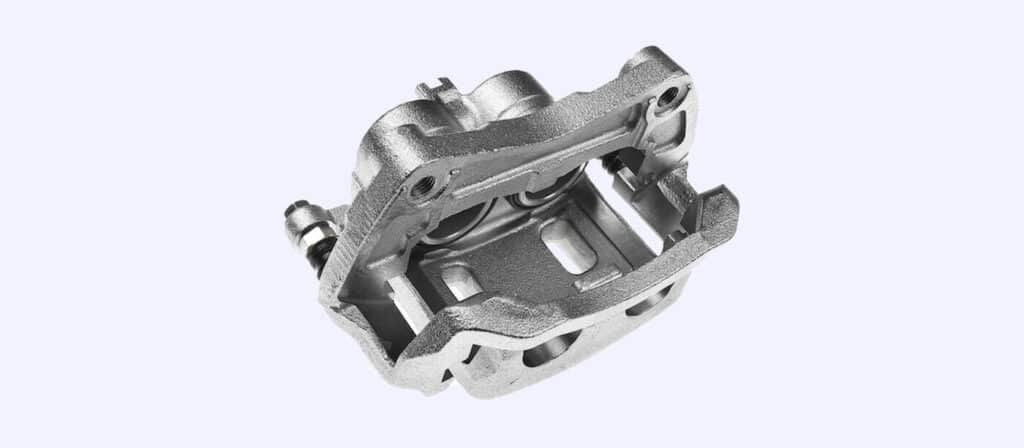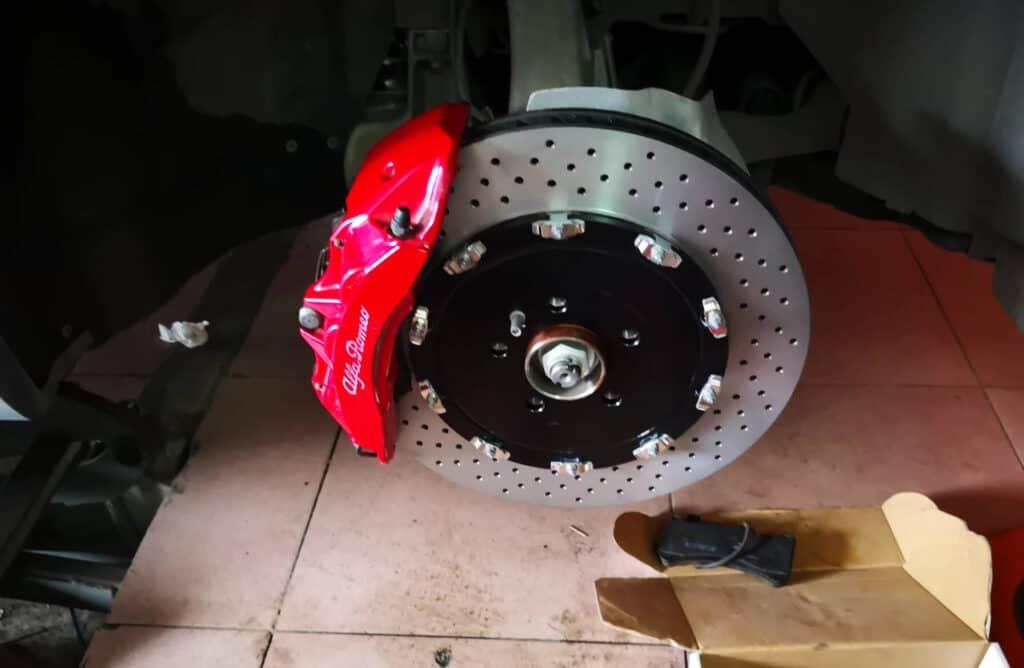Introduction
When it comes to vehicle safety, few systems are as crucial as the braking system. One of the critical components of this system is the brake caliper. Understanding why brake caliper failures occur and how to prevent them can ensure your vehicle remains safe and responsive when you need to slow down or stop.
Understanding the Role of Brake Calipers in Your Vehicle’s Braking System
Brake calipers play a vital role in your vehicle’s braking system. They are essentially clamps that use hydraulic pressure from the brake fluid to squeeze the brake pads against the rotors, causing friction that slows and eventually stops your vehicle. Given this important role, a failure in the brake caliper can significantly affect your vehicle’s braking performance, potentially leading to dangerous situations on the road.
Brake calipers are an integral part of your vehicle’s braking system, and their failure can significantly impact your vehicle’s safety and performance. Understanding why brake caliper failures occur and the common causes can help you prevent these issues and ensure your vehicle remains in optimal condition.
Brake caliper failures occur due to several reasons, most commonly due to wear and tear from regular use. Like all mechanical parts, brake calipers are subject to wear over time, especially given the high-pressure environment they operate in. Regular inspection and maintenance can help identify signs of wear early and prevent sudden failure.

Environmental factors such as rust can also lead to brake caliper failure. The piston inside the caliper, a crucial component for applying pressure to the brake pads, can become stuck due to rust or dirt buildup. This can result in the brake pads wearing unevenly and, in severe cases, can cause the vehicle to pull to one side when braking. Regular cleaning and maintenance can help prevent this issue, ensuring that the piston can move freely and apply even pressure to the brake pads.
In some cases, calipers can fail due to poor maintenance, including insufficient lubrication or the use of incorrect brake fluid. These failures often result in the caliper’s inability to apply or release pressure correctly to the brake pads, impairing the overall braking performance. It’s crucial to follow your vehicle manufacturer’s guidelines for brake fluid type and caliper lubrication to prevent these issues.
Among the common causes of brake caliper failure are leaking brake fluid, a phenomenon that can be caused by deteriorated or damaged seals. Over time, the heat generated by braking can also lead to cracks in the caliper, causing it to fail. Regular inspection can help identify any signs of cracking before it leads to failure.
From Symptoms to Diagnosis: Identifying early signs of Brake Caliper Wear and Tear
Brake calipers, like any other component of your vehicle, are subject to wear and tear over time. Early identification of signs of wear can help prevent more serious issues down the line, ensuring the longevity and safety of your vehicle’s braking system.
One of the first signs of brake caliper wear is a change in your vehicle’s braking performance. If you notice that your vehicle pulls to one side when you apply the brakes, or if the brake pedal feels soft or spongy, it could be an indication of a problem with the brake calipers. These symptoms can be caused by a variety of issues, including a seized caliper, worn brake pads, or a leak in the brake fluid.
Another common sign of brake caliper wear is uneven brake pad wear. This can occur when the caliper is not applying or releasing pressure evenly, causing one side of the brake pad to wear more quickly than the other. If you notice that your brake pads are wearing unevenly, it’s important to have your brake calipers inspected as soon as possible.
Physical inspection can also reveal signs of brake caliper wear. Look for signs of fluid leakage around the caliper, as this can indicate a problem with the caliper seals. Additionally, check for signs of rust or corrosion, particularly on the caliper piston, as this can cause the piston to stick and impair the caliper’s function.
Warning Signs: How to Detect a Failing Brake Caliper
Unusual Noises: One of the most common signs of a failing brake caliper is unusual noise during braking. If you hear squealing, grinding, or metallic scraping sounds when you apply the brakes, it could be a sign of caliper issues. These sounds usually indicate that the brake pads are excessively worn or that the caliper is not releasing properly after braking.
Brake Warning Light: Your car’s dashboard has a variety of warning lights designed to alert you to potential problems. If your brake warning light illuminates, it could be a sign that something is wrong within your braking system, including the possibility of a failing brake caliper. This warning light is typically linked to the brake fluid level and pressure in the system, both of which can be affected by a faulty caliper.
Excessive Brake Dust: If you notice that one wheel has significantly more brake dust on it than the others, this could be a sign of a failing brake caliper. When a caliper sticks, it can cause the brake pads to wear down more rapidly than normal, leading to an increase in brake dust.
Burning Smell or Visible Leaks: A burning smell after driving, especially following intense braking, could signal a seized brake caliper. As the caliper sticks, it generates excessive heat from the constant friction of the brake pads against the rotor. This heat can lead to a burning smell. Similarly, visible leaks of brake fluid from around the wheels could also indicate a problem with the caliper, as the piston seal may be damaged or worn.

Proactive Measures: Maintenance Tips for Preventing Brake Caliper Failure
Preventing brake caliper failure involves regular maintenance and inspection of your vehicle’s braking system. This includes ensuring the brake fluid is clean and at the correct level, regularly checking for signs of rust or leaks, and maintaining proper tire inflation. It’s also important to replace brake pads and rotors at recommended intervals to avoid excessive wear on the calipers.
Adequate lubrication is another key aspect of brake caliper maintenance. The guide pins on which the caliper slides require regular lubrication with high-temperature brake grease. Without this, the calipers may stick, causing uneven brake wear or, in extreme cases, overheating and failure of the brakes. The piston surfaces and the areas where the brake pads make contact with the caliper should also be kept clean and free of dust and grime, which can cause the caliper to seize up.
Moreover, heat management is crucial in prolonging the life of your brake calipers. Braking generates considerable heat, and repeated, excessive heat exposure can lead to caliper failure. Avoid riding the brakes or sudden hard braking, as these can lead to overheating. If you live in a region with extreme temperatures or harsh weather conditions, or if you frequently carry heavy loads or drive at high speeds, you may need to inspect and service your brake calipers more often. Regular maintenance and attention to these details can significantly reduce the risk of brake caliper failure and keep your vehicle safe on the road.
Conclusion
Your vehicle’s brake calipers are integral to the effectiveness of your braking system, and a failure can lead to significant safety issues. Understanding the reasons for brake caliper failure, recognizing the symptoms, and regularly maintaining your brakes can help you avoid these problems. Never ignore any warning signs – if you suspect a brake caliper issue, seek professional help immediately.
